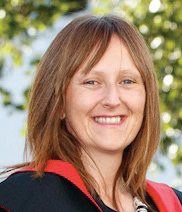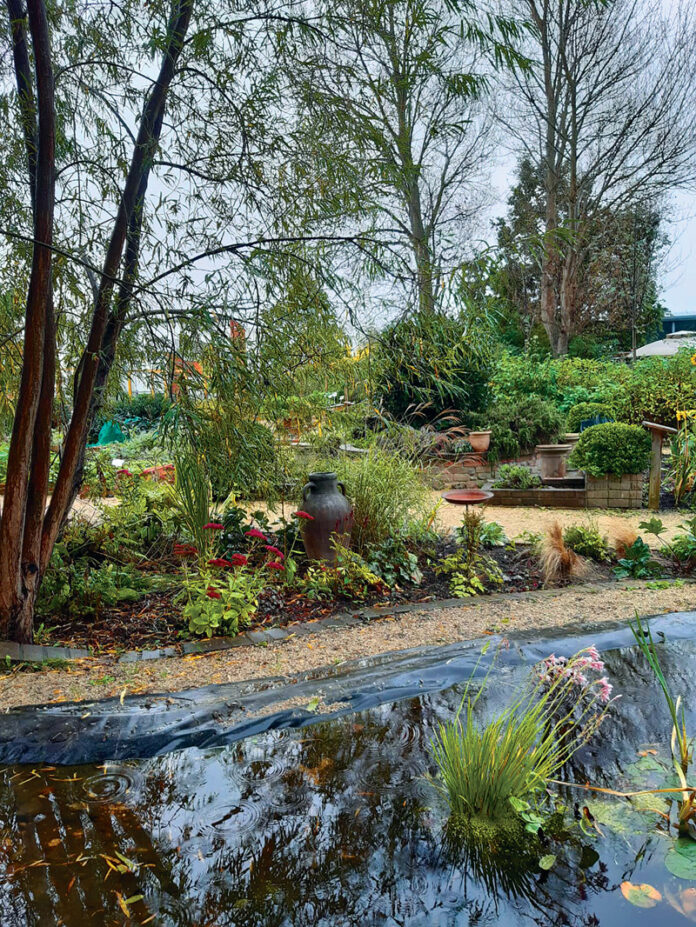Global Action Plan Ireland (GAP) is an environmental organisation with the mission to support sustainable communities across Ireland. Working on the belief that all of us can make a difference, GAP assists and enables people to develop tangible actions that lead to lasting attitudinal development.
Much of GAP’s work is carried out in their garden space in Ballymun, Dublin 11. The ‘Green Living & Sustainability Community Garden’, or GLAS for short, brings people of all ages and abilities together to engage in gardening activities.
GLAS has been operating for almost ten years as a socially inclusive space, set up for participatory learning and active exploration of sustainability through horticulture activities.
Horticulturist Sharon Harvey, a graduate of TU Dublin’s BSc (Hons) Horticulture programme, runs and manages GLAS, which opens weekdays and evenings throughout the year.
GLAS is cultivated for the purpose of growing food such as fruit, vegetables, herbs and other edibles. The garden caters to over 170 people, mostly from the local area.They include schoolchildren, and clients from the Central Remedial Clinic, St Michael’s House and St Vincent’s Centre, Navan Road. These organisations bring a number of service users to the garden as part of their programmes to engage their clients in a wide range of horticultural activities.
The garden has a variety of facilities, including a geodome, which is used as a protected cropping space to extend the growing season. The geodome doubles as a propagation facility and a tea/social space, allowing participants to escape the variable Irish weather.
The garden offers those with limited outdoor space of their own an area to garden. It provides an alternative to the predominant food systems, and in doing so, supplies much needed opportunity to gain contact with nature in an increasingly urbanised environment. GLAS also serves as a social/meeting space for gardeners and other like-minded individuals.
GAP uses the garden as a vehicle for change. The site helps interested individuals and groups to educate themselves towards reducing their carbon footprints and producing organic food, as well as simply enabling participants to enjoy nature, plants and the outdoors.
Evidence-based programmes run by GAP in the Ballymun garden are designed to enable individuals and communities, and to help them overcome barriers to change.
GIFTS OF COMMUNITY GARDENING
Dr Francis McGeough, TU Dublin lecturer in accounting and finance, ran a series of workshops on impact measurement for the Ballymun Regeneration project and Dublin City Council in March 2022. As a follow up to this, GAP asked Francis to conduct an impact assessment of the GLAS garden in Ballymun.
A specialist in measuring performance in the public and non-profit sector and in social return on investment, Francis sought to collaborate with a specialist in outdoor learning and social, community and therapeutic horticulture, in order to complete the impact report requested by GLAS. That specialist was me.
Gardening, in and of itself, is shown to have a multitude of motivating factors, including economic, environmental, political, social and nutritional. Multiple academic studies indicate that the long-term health and wellbeing of individuals and communities is supported through gardening and food growing. It is noted that regular involvement in gardening improves psychological health and physical activity, and can aid recovery and rehabilitation.
These benefits, which are supported by academic evidence, were borne out in the findings of the impact report for the GLAS garden, published last October in a paper entitled, Evaluation Study GLAS Garden Ballymun.
GLAS contributes to social interactions and community cohesion, whilst the food growing improves attitudes to healthy eating. Studies in children suggest that nature-related activities positively impact not only psychosocial behaviour, but also the gut microbiota. Additionally, childrens’ educational attainment is enhanced through gardening activity.
Community gardens are a space for intergenerational collaborative gardening. They act as effective local learning environments that promote physical and psychological wellbeing through community connection, particularly in areas of social disadvantage.
Offering hands-on learning environments for diverse groups, community gardens offer a welcoming space to those experiencing social isolation and/or health and social inequality. Learning to grow fresh food in safe social spaces provides individuals with opportunities to increase awareness of their personal wellbeing and community life.
SOCIAL VALUE
Our GLAS impact assessment research was undertaken via a series of interviews with garden users, both in the garden and online, at a variety of times during spring and early summer 2023.
Within our findings, several key points emerged from the data.
The garden provided a pivotal point in the community for interaction and community involvement, improving social cohesion. Participants reported that the garden helped reduce stress, increased physical exercise, and provided greater access and opportunity for fresh air.
Teachers using the garden with their classes said that it helped to develop mindfulness in their students; provided a much needed outdoor activity, which enabled students to switch off; and gave students something different to do, a change from the academic setting.
In summing up, at the launch of the impact report, Dr Francis McGeough noted, “Not everything that counts can be counted, and not everything that can be counted counts.”
In a world driven by costs and data, there is a value on items that can be counted easily. Yet many important areas of life cannot be counted with numbers. This truth is laid regularly at the door of accountants and departments of finance the world over.
Demonstrating the value of what can’t be counted is an ongoing challenge for organisations funded from the public purse, with its long list of demands and limited finances.
In a commercial enterprise, the ultimate measure of success is profit – you are providing a product or service to a customer at a profit. However, no such measure exists in the public or charitable sector. If we are to appreciate the things that really matter, we must find ways of capturing non-monetary, public value; and in this way demonstrate the importance of the service being provided.
Funders and decision makers need help assessing the social value of projects. It is up to organisations to show what they are achieving with the funds being provided to them. This is where the data derived from an impact report such as Evaluation Study GLAS Garden Ballymun can highlight the real value of GAP to the community.
At the launch of the report, Hans Zomer, CEO of GAP, said: “The study presented today by the TU Dublin research team underlines the vital importance that community gardens such as the GLAS garden have for the community in Ballymun.”
One person interviewed for the report described GLAS as a “proper oasis in the middle of Ballymun.”
Here’s to many more such oases being developed across Ireland.*
For more information, and to read the GLAS evaluation study, visit: globalactionplan.ie/garden/tu-dublin-research-ballymun-community-garden-benefits-both-people-and-planet.
 Rachel Freeman is a lecturer in horticulture at Technological University Dublin, Blanchardstown Campus.
Rachel Freeman is a lecturer in horticulture at Technological University Dublin, Blanchardstown Campus.






